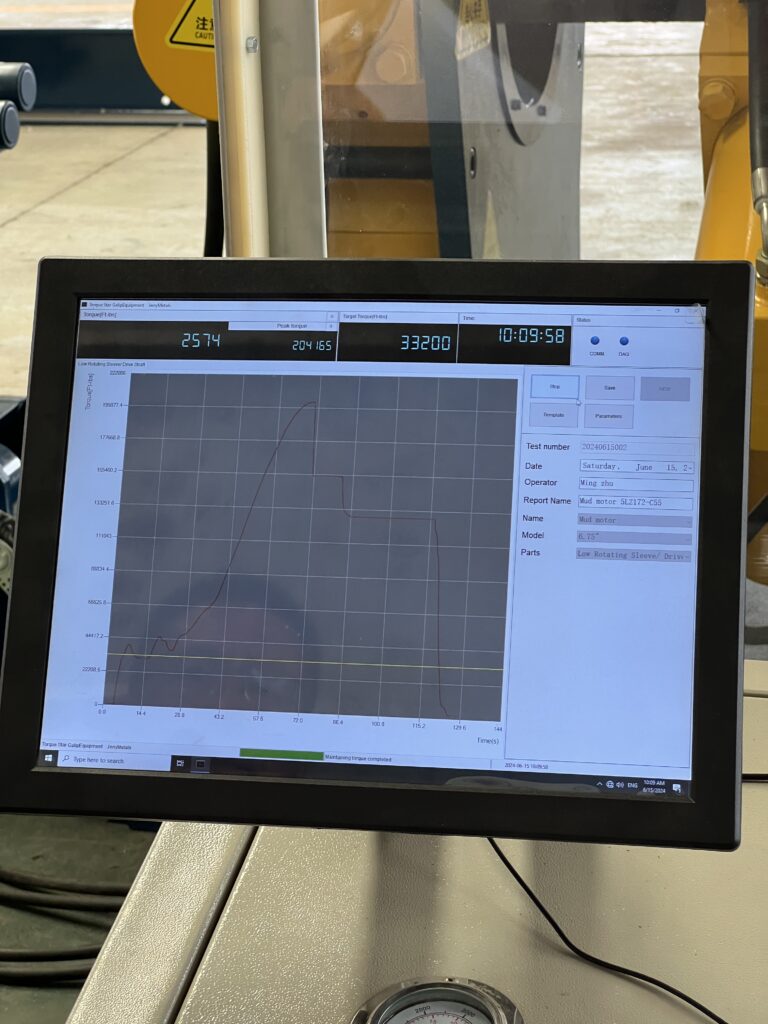
When you’re assembling or disassembling tubular connections in oilfields, precision in torque application isn’t just nice to have—it’s essential. Whether you’re working on drill pipes, casing, or other components, getting the torque right ensures safety, integrity, and longevity in your operations. Bucking units play a central role here, and advanced models come equipped with torque control systems that deliver the precision needed to avoid mishaps like thread damage, loose connections, or outright equipment failure.
The Importance of Precision in Torque Application
In oil and gas operations, pipes and tubulars are subjected to extreme pressures and environmental stress. Tubular connections, if not precisely torqued, can lead to a range of issues:
- Undertightened connections may leak or fail under pressure.
- Overtightened connections could damage threads, deform the pipe, or weaken the connection, increasing the risk of catastrophic failure.
When torque is applied accurately, you ensure that every connection will handle the pressure and stress it’s designed to withstand. It’s not just about getting the job done; it’s about doing it right every time.
Features that Ensure Precision in Torque Application
1. Digital Torque Control
Bucking units with digital torque control systems allow operators to program specific torque values. These advanced systems ensure the exact amount of torque is applied for each connection. By eliminating guesswork, these systems reduce human error and provide consistency from one operation to the next. The digital interface also offers real-time feedback, allowing the operator to monitor torque levels throughout the process【6†source】【7†source】.
2. Torque and Turn Monitoring
Modern bucking units are outfitted with torque and turn monitoring, which tracks both the amount of torque applied and the number of turns during the makeup or breakout operation. This feature is crucial in ensuring each pipe connection meets exact specifications. These systems often include real-time data displays, so operators can catch and correct any anomalies as they happen【6†source】.
For example, the system will show the final torque, optimum torque, and even the number of turns needed to secure the connection【6†source】. This level of detail guarantees accuracy, reducing the chance of errors that could lead to costly downtimes.
3. Torque Calibration Systems
The best bucking units come with built-in torque calibration. This feature ensures that the unit consistently delivers the correct torque based on your input settings. Regular calibration maintains the system’s accuracy and ensures compliance with operational safety standards, reducing the likelihood of thread galling or loose connections【6†source】.
Calibration systems are essential in environments where different pipe sizes and materials are being handled. With precise calibration, the unit adjusts automatically to match each pipe’s specifications, ensuring optimal torque every time.
4. Automatic Torque Adjustment
Some bucking units go even further by offering automatic torque adjustment. Once the pipe specification is selected, the system automatically calculates and applies the appropriate torque settings. As torque approaches a critical level, the unit adjusts its spindle speed and torque pressure, ensuring the connection is flawless【6†source】.
This level of automation reduces operator fatigue and improves operational speed, allowing teams to move quickly from one task to the next without compromising accuracy.
Why Precision Matters
The consequences of inaccurate torque application can be severe, especially in high-stress environments like oilfields. Here’s how precision impacts daily operations:
- Enhanced Safety: Incorrect torque can lead to equipment failure, which may result in injuries or worse. By using a bucking unit with precision torque systems, you minimize the risk of these failures, keeping your workers and equipment safe.
- Increased Efficiency: Consistent, precise torque application means fewer mistakes. You won’t have to waste time redoing connections or dealing with pipe damage, which increases the speed of your operations.
- Reduced Costs: When you avoid errors such as thread damage or improperly connected pipes, you save on repairs and replacements. Precision torque systems extend the lifespan of your equipment and reduce the need for costly interventions.
- Improved Reliability: With consistent, precise torque application, your equipment operates as intended, reducing downtime and enhancing the reliability of your entire operation. This is crucial in an industry where every hour of downtime can translate to significant financial losses.
Applications Where Torque Precision Shines
1. Pipe Testing
When conducting pipe integrity tests, the accuracy of torque application ensures that the test results are reliable. By using a bucking unit with precision controls, operators can apply the exact amount of torque required for testing without damaging the pipes.
2. Drill Pipe and Casing Connections
Ensuring that drill pipes and casings are properly connected is crucial to prevent blowouts or leaks. High-pressure environments, such as deep-sea drilling, demand perfect torque application to avoid catastrophic failures. Precision torque systems in bucking units guarantee that these connections meet the required standards【7†source】.
3. Tool Assembly
When assembling downhole tools, every connection must be perfect to avoid damage during deployment. A bucking unit with precise torque control ensures that all connections meet the exact specifications required for reliable operation.
Conclusion
When it comes to precision in torque application, modern bucking units are leading the way. Their advanced control systems, digital interfaces, and real-time monitoring features help ensure that every tubular connection is made correctly and consistently. The ability to apply exact torque—while monitoring every turn—makes these units indispensable in any operation where reliability and safety are paramount. Investing in a bucking unit with precision torque application capabilities not only enhances the quality of your operations but also boosts efficiency, cuts costs, and extends equipment life.